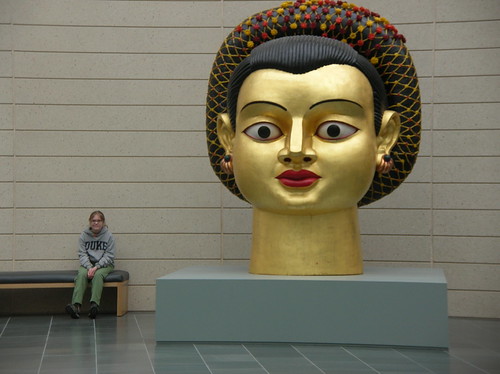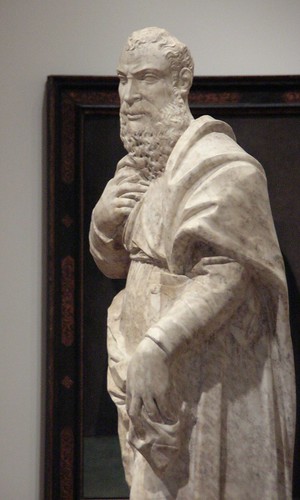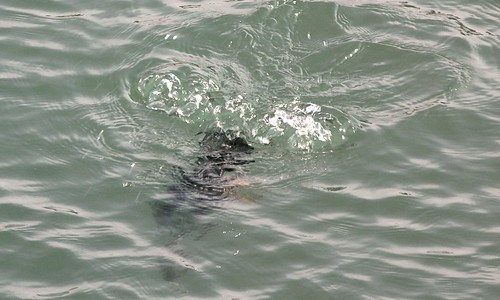I was going to blog about David Weinberger’s newsletter reflections on “meaning,” but today;s beginning to look a little crowded, and elsewhere I wrote a long response to someone who was asking about The Law of Attraction and The Secret. I’m reposting it here (slightly edited) in public, with the proviso that this response is directed toward a group of people some of whom expressed vigorous admiration and some vehement rejection of the phenomenon — and I’m trying to stake out a position that’s pastorally gentle while remaining critical of the bogus side. My less restrained friends Chris and the Tutor would probably couch their assessment with more scathing prose, and I yield to them on composing such.
At the outset, I’ll stipulate that one’s attitude makes a big difference in one’s life — and not exclusively “positive attitude = better.” In the aggregate, people tend to respond more warmly to people with positive attitudes; that amplifies certain possibilities and certain opportunities an increment, and of course if you have a positive attitude, that increment is going to seem bigger. There’s a circularity to that, but it’s not simply chasing your tail.
Depressed people, though, are likely to see the world as it is more honestly. Suffering and unfairness that positive attitude-holders may shut out from their awareness, unwilling to weigh down their consciousness with misfortune, stand out and claim the attention of someone affected by depression. It’s not the world’s cheeriest upside, but it’s true, and I know people who would rather stick with their depression and see misery in sharp focus, than to accept therapeutic intervention that would make them “cheerier” at the cost of what they take to be their vivid realism.
With regard to the specific premises advanced in this movie and book: I have not read the book, nor did I watch more than the first few minutes of the Google video. There may be mind-blowing pearls of hidden wisdom that I did not encounter in my inadequate sample size.
That being said, it looks to me as though the author and filmmaker are trading on an ambiguity in the word “secret.” If I say, “The secret to getting to Carnegie Hall is practice,” everyone knows (a) that it’s not a secret (b) that the force of the word “secret” is more like “fulcrum” or “method” or “answer.” In one sense, then, I take it that the claims I hear in this short film segment are uncontroversial, if hyperbolically overstated: a positive attitude is likely to impress others positively and amplify their esteem for you, etc. How much of a difference this makes, who knows? It’s not a revolutionary difference in the aggregate, but particular people may find extreme success this way, and their endorsement tends to drown out many other people’s disillusionment. That doesn’t mean it wasn’t helpful for person A; it just means that we shouldn’t be surprised if person L is more like people B, C, D, E, F, G, H, I, J, and K for whom this approach didn’t work.
The other aspect of “The Secret” is more problematic. For ages and ages and ages — perhaps it’s innate, I decline to speculate about that — people have wanted to know the secret. The popularity of ⟨/gag⟩ The da Vinci Code and the persistence of esoteric traditions provides sufficient testimony that many people are predisposed to think that there’s some sort of Hidden Answer that is open to The Right People, but that mere ordinary humans don’t have access to. The opening sequence of the movie trades on this use of the word “secret,” but think for a moment: if Plato, Shakespeare, Newton, and Emerson are the sources for this “secret,” just how “hidden” can it be? People have been reading Plato for, what, 2300 years? Do you have to go to your neighborhood metaphysical bookstore to get a copy of Macbeth? And among the few people who actually read Newton instead of learning his formulae, do we have reason to suppose that they discover a concealed message about prosperity and well-being? As for Ralph Waldo Emerson — to whom I’m distantly related — he blends a reasonable emphasis on human capacities and self-discovery (which I dissent from, but recognize as intellectually reputable) with a self-congratulatory neo-Gnosticism to which I strongly object.
But, it makes some people feel good to think that they’re in on the Sooper Sekrit (best-selling, unsubstantiated by experimental verification) answer to the universe — far more than actually benefit from the sound application of positive thinking (itself a limited, not universal, good thing). On the whole, this is not my cup of tea, even though I tend markedly to “think positively” more than most people. For me, that means mostly just thinking the best of people, so as to give them room to be better than they might be if I approach them with suspicion; trying to emphasize my own strengths and my capacities to deal with stress, frustration, and misfortune, rather than wallowing in the self-pity and complaining to which I might otherwise be inclined (and I’m far from perfect on that score); and concentrating my energies and attention where there’s greatest likelihood of some positive response.
Oooops, I guess it’s not secret any more. Well, if I disappear from the face of the earth, you’ll know that the vast international conspiracy to suppress the truth has gotten to me. Of course, then they’ll probably delete this post, too, just as they so successfully suppressed The da Vinci Code and the Law of Attraction book and movie. If “lack of public attention” is one’s criterion for “secret wisdom,” then my books are exponentially more reliable than either TdVC or Law of Attraction.
Continue reading “42”






